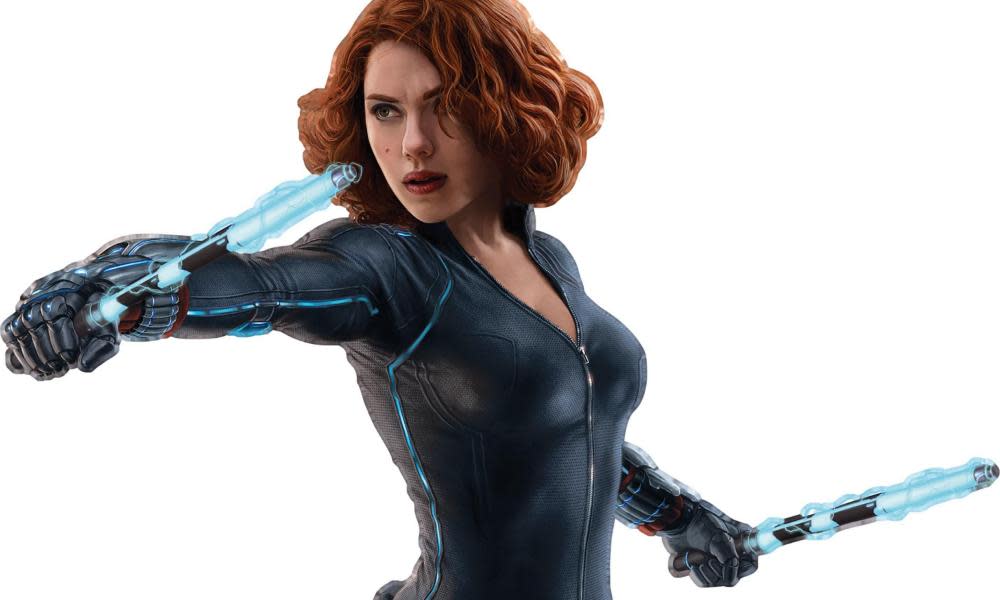Could coronavirus spell the end for superhero movies?

After the massive 2019 hits Avengers: Endgame and Spider-Man: Far from Home, it seemed a safe bet that the Marvel Cinematic Universe would go on for ever. The high-flying blockbusters with their tight costumes, digital effects and insouciant quips could pack cinemas until the apocalypse. There would never again be a year without superheroes.
Sadly, the apocalypse has come sooner than expected. Superheroes can fight secret quasi-Nazi conspiracies, invading aliens and android armies. But they are ill-equipped to fight the coronavirus. Superheroes on screen have saved the world repeatedly. But, in this real-life crisis, the MCU’s vision of empowerment via teaming up to blast things to smithereens seems woefully inadequate.
The coronavirus has wreaked havoc on the film industry. Like most major releases, MCU films scheduled for spring and summer have been delayed until autumn, or pushed into next year. Black Widow has been moved from 1 May to 6 November, and the new date will mean the longest pause between MCU releases since The Incredible Hulk (2008) was followed two years later by Iron Man 2.
The date changes reflect the logistical challenges of showing movies at the moment. Beyond that, though, the superhero genre feels irrelevant in a pandemic. Superheroes have always been given oomph and whoosh, not by disease but by war. The first huge success in the superhero genre came soon after the start of the second world war. In one of his early adventures, Superman, the first superhero, captured Hitler and Stalin to end the war. Other patriotic heroes such as the red-white-and-blue-clad Captain America and Wonder Woman regularly thumped Nazis and Japanese infiltrators on the home front.

Superhero comics in the war years could sell hundreds of thousands of copies an issue – a level of popularity the genre didn’t see again until the post-9/11 “war on terror”. Iron Man (2008) showed Tony Stark blasting away evil terrorists in the for ever war in Afghanistan, while Spider-Man: Far From Home in 2019 imagined our hero gaining control of an army of drones more powerful even than America’s own deadly stockpile. Over the 11 years between those two films, the MCU franchise grossed $22.5bn.
The appeal of superheroes in wartime is straightforward. They’re an empowerment fantasy of strength, violence and victory. MCU plots can be more or less clever, but the films rely on images of muscular men and women punching or blasting large numbers of bad guys until the bad guys fall over, or else stand up to be punched and blasted some more. The MCU narratives, with their incessant crossovers and team-ups, are about powerful people banding together to thump the snot out of their enemies. They’re popular at moments of militarism because their approach to problems is militaristic. There are enemies out there, and you beat them with a combination of unity and overwhelming force.
But overwhelming force is little use against a virus, and teaming up physically is harmful. Invulnerable superheroes swoop across vast distances to confront their foes in endless, glorious battle. In contrast, our virus response involves immobilisation, isolation and enforced inactivity as the economy collapses and we wait anxiously to start coughing. Instead of empowering fisticuffs, we’re called to help others and ourselves through deliberate self-disempowerment.
If there is heroism, it’s the heroism of enduring as everyone becomes less super. Disaster movies such as Contagion or zombie films are too eventful to capture our apocalypse of immobility. But they get a lot closer than superhero narratives. It’s hard to imagine yourself saving the world when you can barely imagine leaving the house to visit your loved ones.
So will the virus finally take the wind out of the cape of the superhero genre? The answer is probably not. It’s true that, even before the virus hit, there were signs that the superhero craze might be slowing down – DC’s Birds of Prey, released earlier this year, for example, was a financial disappointment. But US wars in Afghanistan and the Middle East grind on, tentative peace proposals notwithstanding. And fans certainly remain excited about forthcoming MCU sequels.
Coronavirus won’t end the MCU permanently. But the enforced pause is a reminder that superheroes as a genre frame problems and solutions in specific ways, responding to specific historical conditions. Iron Man can snap his fingers and eliminate Thanos’s invading army. But there’s not a lot he can do when a poor government response exposes the public to a dangerous pandemic. It’s fitting that superheroes have gone silent at the moment. They were never designed to save us from this.

 Yahoo News
Yahoo News 
